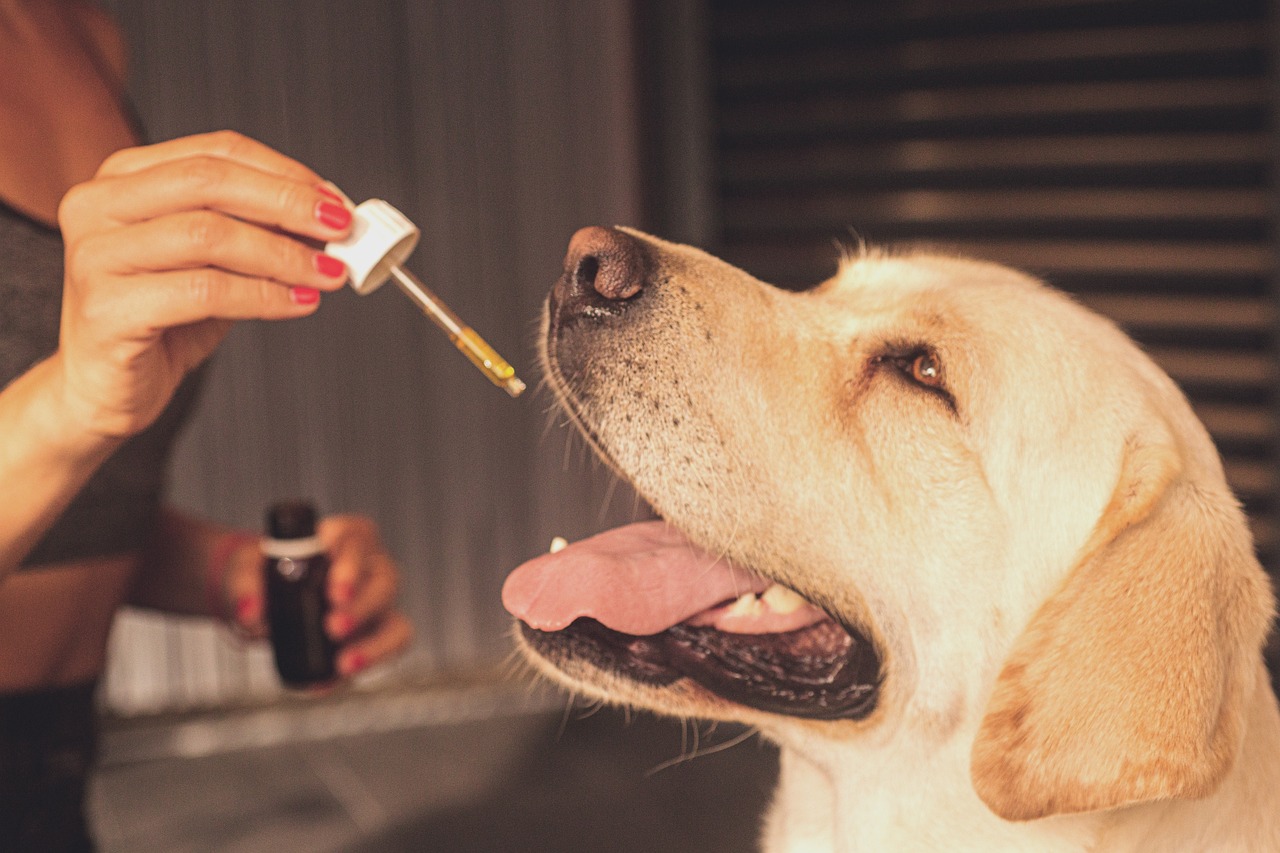Natural Remedies for Managing Pet Anxiety and Stress

Introduction
Pet anxiety and stress are common issues that affect many animals, from dogs and cats to rabbits and birds. These conditions can result from various factors, including changes in the environment, separation from owners, or even loud noises. Addressing pet anxiety and stress is crucial for their overall well-being and happiness. Fortunately, there are several natural remedies available that can help manage these conditions effectively. This article explores various natural approaches to alleviating pet anxiety and stress, offering practical solutions and insights for concerned pet owners.
Understanding Pet Anxiety and Stress
Before diving into natural remedies, it’s important to understand what causes anxiety and stress in pets and how they manifest.
Common Causes of Pet Anxiety:
- Separation Anxiety: Pets may experience anxiety when left alone or separated from their owners.
- Environmental Changes: Moving to a new home, changes in routine, or introducing new pets can trigger stress.
- Loud Noises: Thunderstorms, fireworks, and other loud sounds can be frightening for pets.
- Socialization Issues: Lack of socialization or negative interactions with other animals can cause anxiety.
- Health Problems: Illness or discomfort may also contribute to stress.
Symptoms of Pet Anxiety:
- Excessive barking or meowing
- Destructive behavior
- Hiding or withdrawal
- Excessive grooming
- Changes in appetite
- Trembling or pacing
Natural Remedies for Managing Pet Anxiety and Stress
- Herbal Remedies
Herbal remedies have been used for centuries to promote relaxation and reduce stress. Here are some herbs known for their calming effects on pets:
- Chamomile: Chamomile is known for its soothing properties and can help calm anxious pets. It can be given as a tea or in supplement form, but always consult your vet for proper dosage.
- Valerian Root: Valerian root is often used to help manage anxiety and promote relaxation. It works by increasing levels of a neurotransmitter called GABA, which has calming effects.
- Lavender: Lavender is well-known for its calming scent. Essential oils can be used in diffusers or applied topically (diluted) to help calm pets.
- Aromatherapy
Aromatherapy involves using essential oils to promote emotional and physical well-being. When used correctly, essential oils can be beneficial for managing pet anxiety. Here are a few oils and their uses:
- Lavender Oil: Lavender oil is known for its relaxing properties and can help calm anxious pets. Use a diffuser or apply diluted lavender oil to your pet’s bedding.
- Frankincense Oil: Frankincense has grounding properties and can help reduce anxiety. It can be used in a diffuser or mixed with a carrier oil and applied to your pet’s fur.
- Chamomile Oil: Chamomile oil is soothing and can help with anxiety and stress. Like lavender, it can be used in diffusers or applied topically in a diluted form.
Important Note: Essential oils should always be used with caution. Some oils can be toxic to pets if used improperly. Always consult with a veterinarian before using essential oils on or around your pets.
- Nutritional Supplements
Certain nutritional supplements can help support your pet’s nervous system and reduce anxiety. Look for supplements containing:
- L-Theanine: An amino acid found in green tea, L-Theanine can help promote relaxation and reduce stress in pets.
- CBD Oil: Cannabidiol (CBD) is a non-psychoactive compound derived from hemp. It has been shown to help manage anxiety and promote relaxation in pets. Ensure you use pet-specific CBD products and consult your vet for appropriate dosing.
- Melatonin: Melatonin can help regulate sleep patterns and reduce anxiety, especially in pets who have trouble sleeping due to stress.
- Behavioral Therapy
Behavioral therapy focuses on modifying a pet’s behavior through positive reinforcement and desensitization. Here are some effective techniques:
- Desensitization and Counter-Conditioning: Gradually expose your pet to the source of their anxiety in a controlled manner. For example, if your pet is afraid of loud noises, play recordings of the sounds at a low volume while providing treats and praise.
- Positive Reinforcement: Reward your pet for calm behavior with treats, praise, or playtime. This helps them associate positive experiences with situations that previously caused anxiety.
- Training: Basic training commands such as “sit,” “stay,” and “come” can help manage anxiety by providing structure and direction.
- Environmental Enrichment
Creating a stimulating and comforting environment can help alleviate stress and anxiety. Consider these enrichment strategies:
- Safe Spaces: Provide a designated area where your pet can retreat when they feel overwhelmed. This could be a cozy bed or a quiet room with their favorite toys.
- Interactive Toys: Toys that engage your pet mentally and physically can help distract them from anxiety and keep them occupied.
- Routine: Establishing a consistent daily routine can provide a sense of security and predictability for your pet, reducing anxiety.
- Physical Exercise
Regular physical exercise is essential for managing stress and anxiety in pets. Exercise helps release endorphins, which can improve mood and reduce anxiety.
- Daily Walks: For dogs, daily walks provide both physical exercise and mental stimulation. Adjust the length and intensity based on your dog’s fitness level.
- Playtime: Engage your pet in interactive play with toys like fetch, tug-of-war, or puzzle toys.
- Agility Training: Training your pet in agility courses can be a fun way to provide both physical and mental exercise.
- Massage Therapy
Pet massage can help reduce stress and promote relaxation. It involves gently rubbing and kneading your pet’s muscles to release tension and improve circulation. Here’s how to perform a basic pet massage:
- Start with Gentle Strokes: Use your fingers to apply gentle strokes along your pet’s back, legs, and neck.
- Apply Light Pressure: Gradually increase the pressure to knead and work out any knots or tension.
- Focus on Problem Areas: Pay attention to areas where your pet may be tense or stressed.
- Music Therapy
Music therapy involves playing calming music to help reduce anxiety and stress in pets. Music designed specifically for pets is available and can include soothing classical or instrumental tunes.
- Calm Music: Play soft, soothing music during stressful situations, such as during thunderstorms or when you are away from home.
- Music Apps: Some apps are designed specifically for pets and offer a range of calming music and sounds.
Integrating Natural Remedies into Your Pet’s Routine
- Consult Your Veterinarian: Before introducing any new remedy or supplement, consult with your veterinarian to ensure it’s safe and appropriate for your pet’s specific needs.
- Monitor Your Pet’s Response: Observe how your pet responds to new remedies and make adjustments as needed. What works for one pet may not work for another.
- Combine Remedies: Natural remedies can be combined for a holistic approach. For example, you might use herbal supplements alongside behavioral therapy and environmental enrichment.
- Maintain Consistency: Consistency is key when managing pet anxiety. Stick to a routine and regularly use the chosen remedies to see the best results.
- Create a Calm Environment: Along with natural remedies, ensure your pet’s environment is as stress-free as possible. Minimize exposure to stressors and provide a safe, comforting space.
Conclusion
Managing pet anxiety and stress through natural remedies offers a compassionate and effective approach to improving your pet’s well-being. From herbal supplements and aromatherapy to behavioral therapy and environmental enrichment, there are numerous strategies to help your furry friend feel more at ease. By understanding your pet’s unique needs and integrating these remedies into their routine, you can support their emotional health and enhance their overall quality of life.
Always consult with your veterinarian before starting any new treatment or remedy. With careful consideration and a holistic approach, you can help your pet navigate their anxiety and stress, leading to a happier, healthier life.



